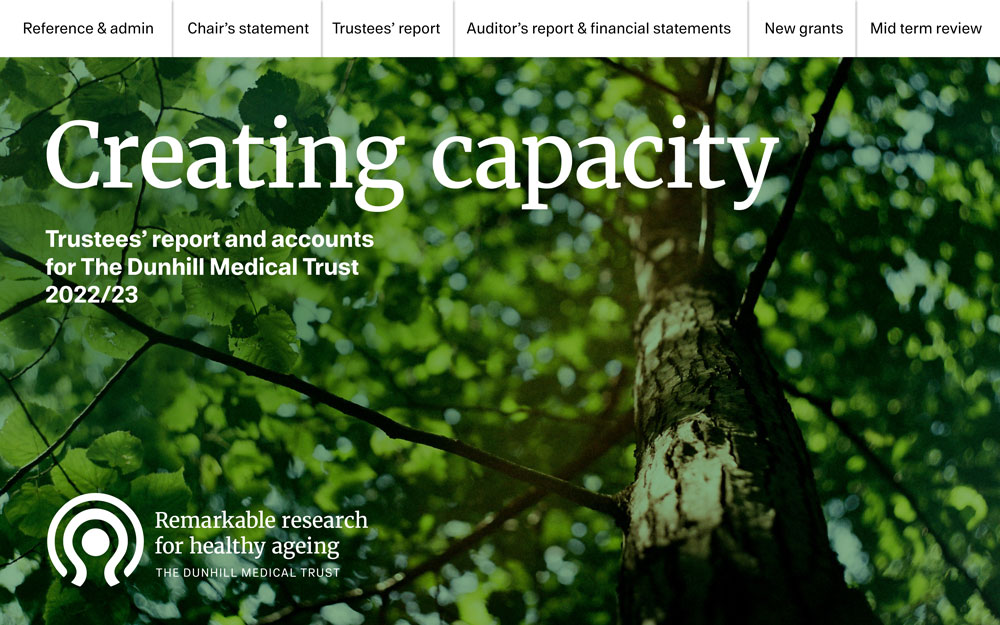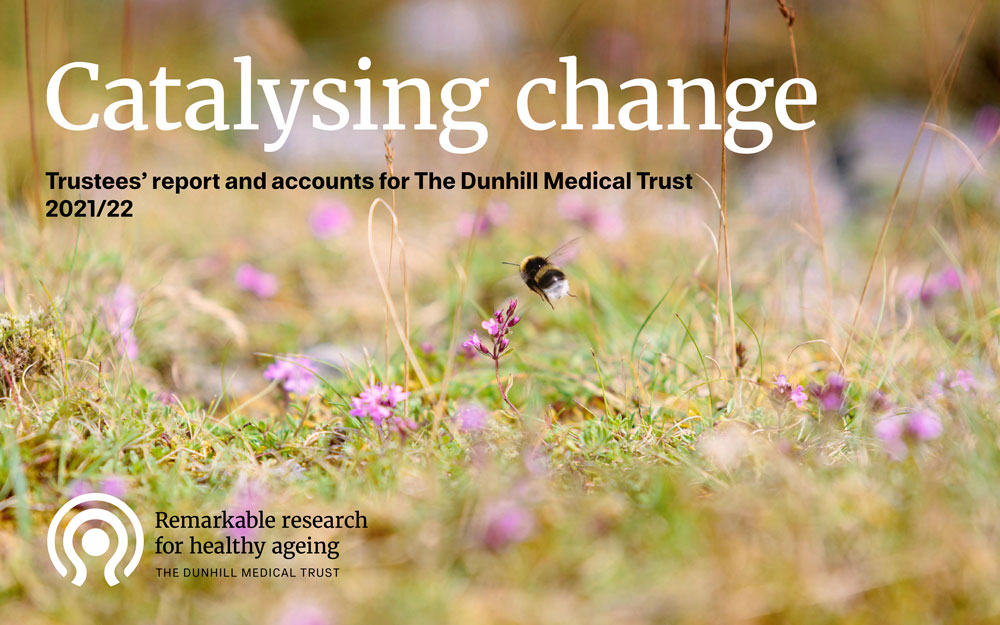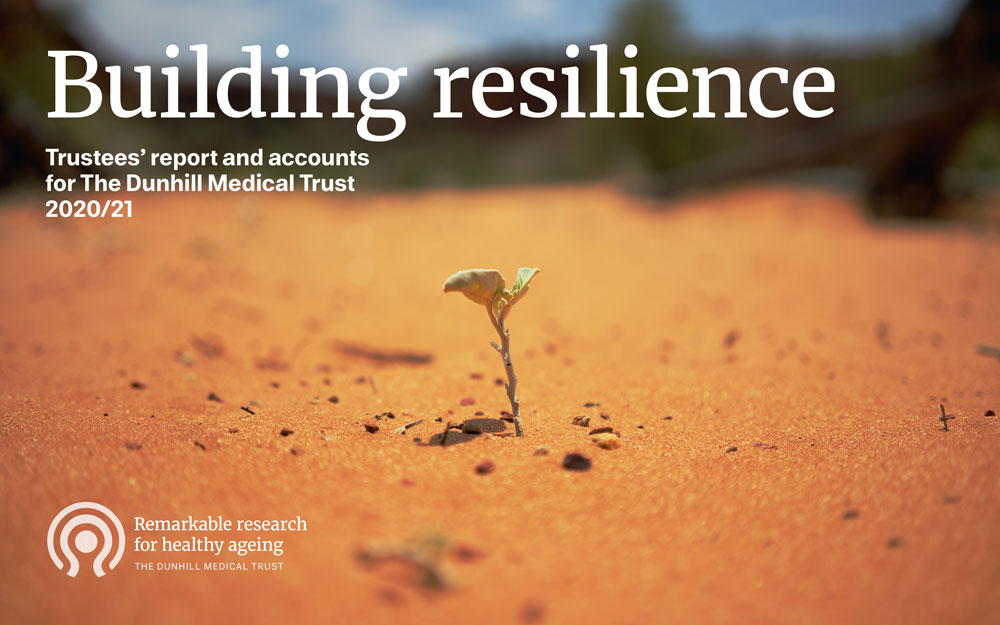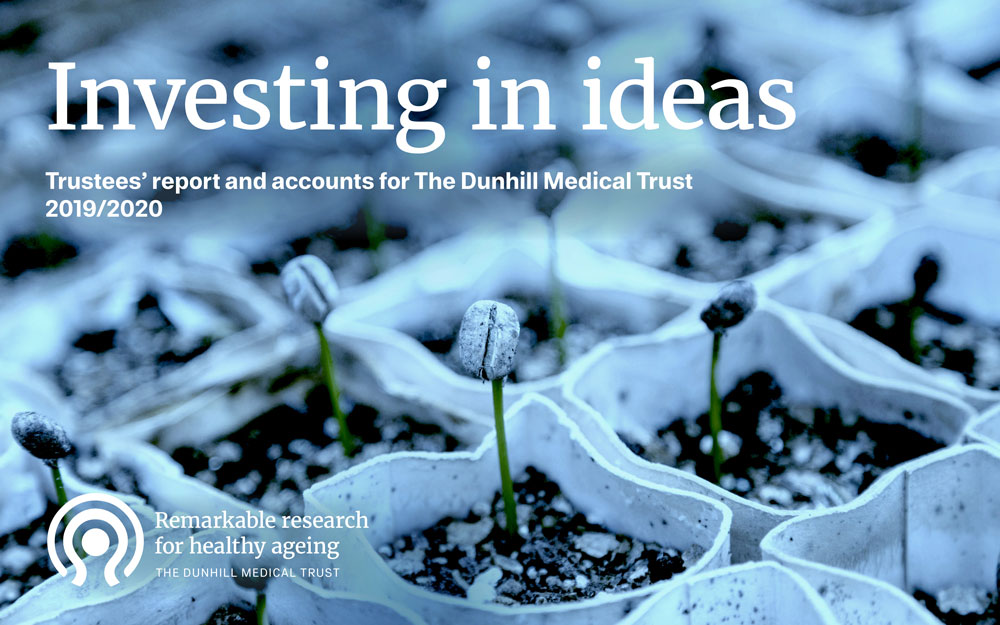About us
You can find links to our strategic aims and objectives here, along with details of our people (staff, committee members and trustees) and our history.
Our aims, vision and strategic priorities
We invest in those who have great ideas and methods for improving the health and well-being of older people and in making the connections which can help them to flourish.
Our people
The Trust is run by a staff team of seven, led by the Chief Executive who reports to the Board of Trustees. There are currently eleven Board members who can each serve up to two four year terms of office and meet four times per year.
Reporting to the Board are three Committees: Research Grants Committee, Social Financing Committee and Investment Committee. Trustee committee members are assisted by a number of independent advisers who have professional expertise appropriate to the Committee they serve.
Click on the relevant category below to see Board and Committee members and on their images for career biographies and contact details.
Vacancies
We’re a highly collaborative team here at the DMT. We like to plan and be prepared, but we also like to be flexible and responsive to new ideas. We’re committed to making our contribution to understanding what it takes to improve health outcomes in older age and to the much-needed systemic change in health and social care for older people – so we want to work with people who share that commitment. We list our current vacancies and other opportunities to work with us here.
Reports
The Dunhill Medical Trust files its Trustees’ Report and Accounts with the Charity Commission for England and Wales and with Companies House. You can find a selection of the most recent here.
Governance and policies
Our Articles of Association (pdf) is the constitutional document which sets out our charitable objects and our governing regulations.
The Dunhill Medical Trust accepts that organisations and individuals should be able to make complaints regarding any unsatisfactory aspects of its working practice. The purpose of this procedure is to set out a process for dealing with complaints which is fair and aims to resolve issues which may arise as quickly and reasonably as possible. The Trust aims to ensure that its grant-making reflects best practice and reserves the right to determine how it carries out its work. It does, however, accept that from time to time issues might arise which may need to be resolved as a result of the Trust’s interaction with grant applicants and grant holders, and other external individuals and organisations.
IT Security
Our IT security is important to us and we are Cyber Essentials accredited.
Information Security Policy (pdf)
Outsourcing and third party compliance Policy (pdf)
Information Handling Policy (pdf)
User and Password Management Policy (pdf)
Software Management Policy (pdf)
Mobile Computing and Remote Working Policy (pdf)
Data protection
The Dunhill Medical Trust (DMT) holds personal data about its employees, Trustees and Committee members, grant holders, suppliers and other individuals for a variety of purposes relating to delivery of its charitable objectives. It seeks to adhere to the principles of data protection legislation, in particular to meet the requirements of the General Data Protection Regulation (GDPR) effective May 2018 and updated subsequently by UK GDPR, which came into effect on 1 January, 2021.
This policy sets out how the Trust seeks to protect personal data and ensure that its staff, Trustees and external advisors understand the rules governing their use of personal data to which they have access in the course of their work. In particular, this policy requires staff to ensure that the Chief Executive is consulted before any significant new data processing activity is initiated to ensure that relevant compliance steps are addressed. Any breach, whether deliberate or through negligence, may lead to disciplinary action being taken.
Download our Data protection policy (22-10) (pdf)
Our Privacy Notice is intended help our stakeholders to understand what information we collect about them, how we use it, how we protect any information that they give us and what choices they have.
Equality and diversity policy
The work we fund means that we know all too well the negative impacts of inequity. We are therefore committed to promoting equity, diversity and inclusion in all areas of our work.
We recognise the inherent benefits of having a diverse board and workforce and the negative impact of discrimination on us and the communities that we serve. We work hard to promote a culture of respect and dignity and work within the practice – and the spirit – of the Equalities Act 2010. We do our very best to proactively combat behaviours and barriers that can lead to discrimination.
Our equality and diversity policy is in three parts:
- The Trust as a funder.
- The Trust as an employer.
- The Trust as a partner.
Download our Equality and Diversity Policy (pdf).
We also have a Board Diversity Action Plan (pdf) which was approved by the Board in June 2022 and is subject to regular review. Please note, we do not publish numbers and targets relating to our equality and diversity policy. While we collect data (where we have permission to do so) and monitor it to use it in our planning and decision-making, to publish it would risk making special category data about individuals identifiable owing to our size.
Modern Slavery statement
The Dunhill Medical Trust (DMT) has a zero-tolerance approach to modern slavery, and we strive to act ethically and with integrity in all of our business dealings and relationships to ensure that modern slavery is not taking place anywhere in our own organisation. We will also ensure our approach and stance is clear with our partners, applicants and award-holders.
Download our Statement on Modern Slavery (pdf)
Safeguarding policy
Organisations that work regularly with vulnerable people (children or adults at risk, their parents, carers or families) need to comply with safeguarding legislation and best practice recommendations. While the Trust does not work directly with groups defined by the Care Act 2014 as vulnerable, it expects and requires organisations who do and which it funds, or with which it collaborates, to have suitable policies and mechanisms in place to prevent and address incidents of exploitation, abuse or harm.
Download our safeguarding policy (pdf).
Staff handbook
The health and well-being of our small staff team is hugely important to us. Our Staff Handbook sets out all of our HR-related policies, including our sector-leading family-friendly (parental and carer’s leave) policies and our pay and benefits.
Download our Staff handbook 22-11 (pdf)
We are a Living Wage Employer.
Our history
Herbert E Dunhill, the brother of Alfred Dunhill, died in November 1950 leaving provision that on the death of his wife, Violet, who survived him by twelve years, £250,000 worth of shares in Alfred Dunhill Ltd from his personal estate should be put into Charitable Trust for medical research into tuberculosis, the cause of his ill-health throughout much of his life. The shares were disposed of in tranches over time (in their entirety by 1998) to seed the fund that, through a number of legal and administrative changes, established the modern charity.
His niece, Mary Dunhill Lane, was appointed one of the original Trustees and it was largely her vision that drove the Charity, named the Herbert E Dunhill Trust, until her death in 1988. Her daughter, Kay Glendinning, continued her work and was Executive Director of the charity into which the assets were transferred from 1988 until April 2005 when she joined the Board in a non executive capacity. In 2019, she stepped down as a Trustee and became the Trust’s Patron.
Kay recalls returning to work from maternity leave to ask if she could resume the job she had had on the shop floor in the family business since leaving school at 17. She was greeted with a plan hatched by her mother to work in her Uncle Herbert’s expanding charity, directed to address herself to a toppling pile of paper and issued with an instruction to go out and learn about medicine! This she did, finding herself very quickly in an operating theatre at Guy’s Hospital watching an operation on a baby. She admits to fainting but never looking back.
By the 1980s, the Trust was receiving an increasing number of grant applications related to issues associated with ageing and the care of older people. Although there was a clear case of unmet need, many applications could not be supported because they fell outside the original aims of the Trust. To rectify this, the Herbert E Dunhill Will Trust Deed was formally amended and in 1988 the Charity was renamed The Dunhill Medical Trust and was registered with the Charity Commission (Charity no. 294286). On 1st April 2011, The Dunhill Medical Trust also became a charitable company limited by guarantee (registered company number: 07472301; registered charity number: 1140372). The Trust’s assets, now worth c.£170M today, are invested in a range of funds in the global stock markets, details of which can be found in the annual report and accounts.
The Trustees and staff take their responsibilities regarding protection of the endowment and the environmental, social and governance aspects very seriously, so our investment policy remains under regular review and investment in “tobacco stocks” is a specific policy exclusion.
Today’s Trust has no connection with the tobacco industry and complies fully with the Joint Protocol of Cancer Research and Universities UK on Tobacco Industry Funding to Universities (2004).




